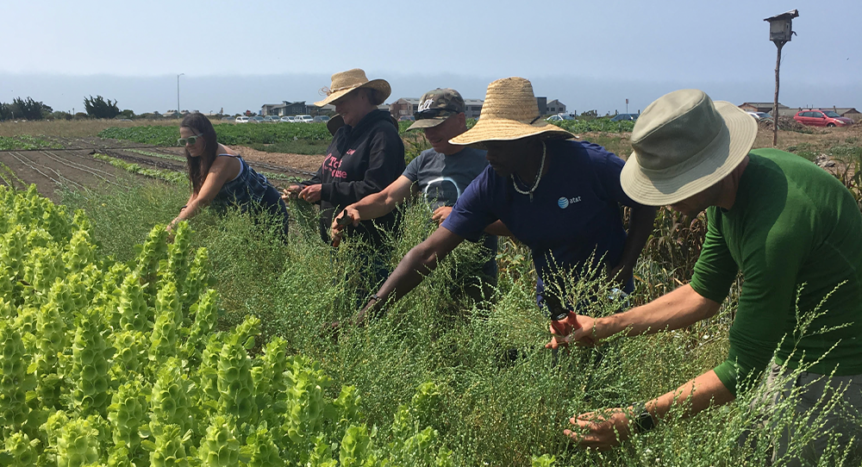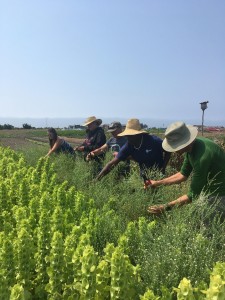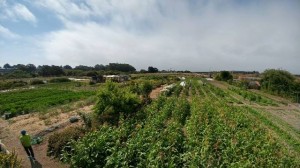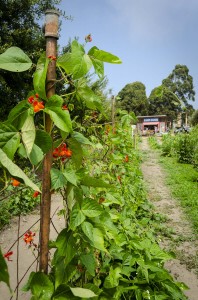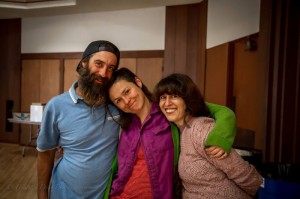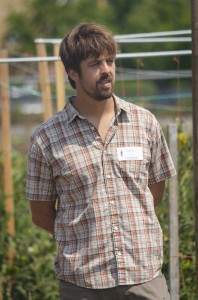Over the past 12 years, staff and faculty at the UCSC Blum Center on Poverty, Social Enterprise, and Participatory Governance have worked with HGP to document trainee growth and the transformative power of the farm. In addition to asking trainees to complete questionnaires at the beginning and end of their participation in the program, we have also been working to assess HGP’s long-term impact and better understand alumni needs. We have now completed 19 post-program interviews. We asked alumni to reflect on their experiences at HGP, identify aspects of the program that remain useful in their lives, and discuss current needs and goals. We share some of the central themes that emerged during our interviews.
- Enhanced Self-Esteem. When asked to reflect on their experiences, many alumni identified enhanced self-esteem as a key program outcome. Describing their time at the farm, one alumni explained, “Everyone starts to feel their self-esteem bolstered. You learn your voice is as important as anyone else’s voice. On the street you feel invisible so that is a big thing.
- Stronger Interpersonal and Professional Skills. Respondents also credited HGP with strengthening their interpersonal and professional skills. Alumni described learning how to cooperate and work with diverse team members. As one graduate explained, “I learned the importance of being involved and accepting everyone for what they can contribute to a team.” Communication and leadership skills were also noted, “At HGP you help make people better, not get frustrated by their mistakes.” Additionally, learning to work with management in a job setting was cited as an important skill.
- Community Support and Accountability. Many interviewees praised HGP’s strong culture of community support and accountability. When asked to share a favorite memory, one graduate observed, “I just felt very secure because all my people were there and I was filled with gratitude because I had community.” Another interviewee noted, “HGP has been my number one support system since moving to Santa Cruz, going there brings me peace…they always support you.” This support was instrumental to personal growth, with the program described as “a beautiful and safe space for me to transition, a gentle and firm space for me to get back into becoming the person I am supposed to be and getting back into the work world.”
Moving from Research to Action: The Creation of the Alumni Circle Program
It was clear from our interviews that alumni benefited greatly from their work with HGP and desired ongoing connection and community. Some interviewees described having difficulty setting goals without group accountability, noting that their current workplace did not foster a strong sense of community. Importantly, HGP was described as source of interpersonal support as well as a site for building social capital and gaining access to resources and programs. As one graduate shared “I got the first roof over my head through connections I had at HGP. Getting a job or housing is more difficult now because I don’t have the venue to make the social connections anymore.”
To meet the need for ongoing connection, the Alumni Circle Program was established inJanuary 2018. Monthly Alumni Circle meetings build on the HGP’s powerful tradition of “circle group” during which program participants and staff “check-in” and discuss a question or topic about their lives and goals. The Alumni Circle is based on the foundational affirmation, “We are an open, accepting community of alumni to provide support, inspiration, friendship, and connection, wherever you are on your journey.” Justin Wright, Volunteer and Intern Program Manager and program alumnus, facilitates the meetings. The Alumni Circle is a source of support and strength for participants who describe the group as “family.”
As the Alumni Circle approaches its one-year anniversary, we are delighted to see how findings from our long-term follow-up with HGP graduates has been used to develop and inform this new program. We look forward to continuing to learn about HGP’s short and long term impact.
–Emily Hentschke, Heather Bullock, and Shirley Truong, UCSC Blum Center on Poverty, Social Enterprise, and Participatory Governance

